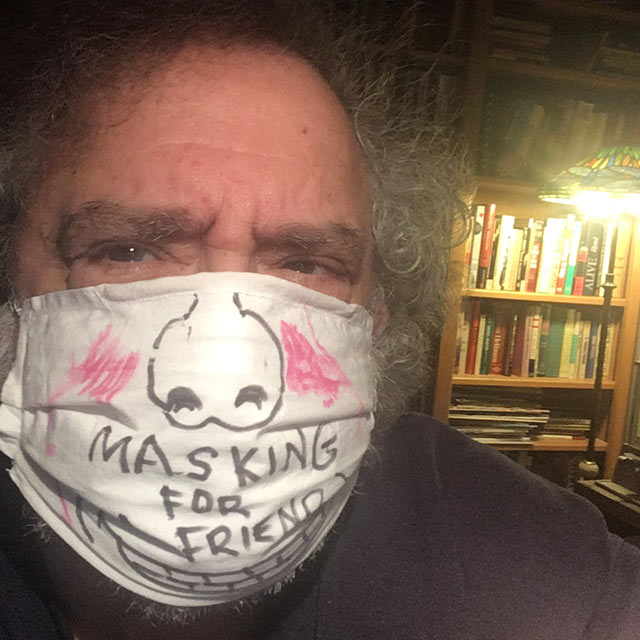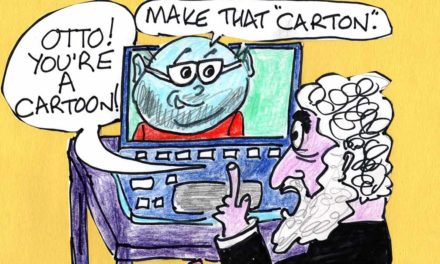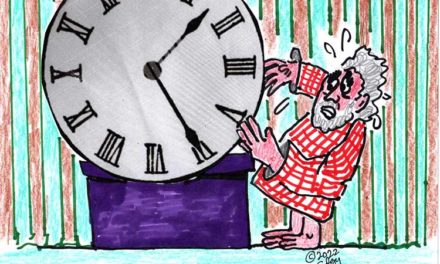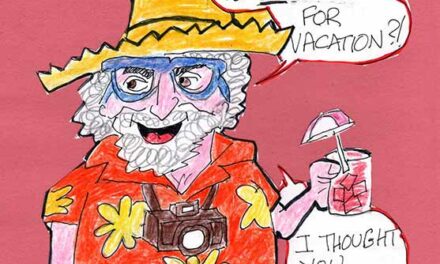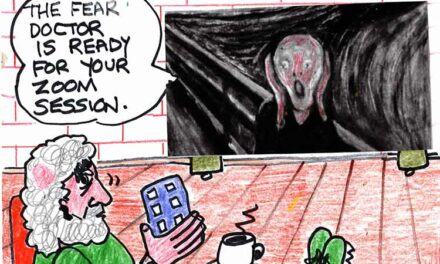Has the Pandemic Curbed Constant Whining?
A new study by a staffer at this column has highly refutable proof
By Ed Goldman
The head of research for The Goldman State, Delve S. Presley, reports there have been two semi-positive things that have emerged from the pandemic:
- When you wear a mask people can’t tell if you’re smirking.
- Whining has been trimmed by at least 73 percent in the United States. Delve admits this is anecdotal, and largely confined to his immediate family.
“Ergo, the margin for error could be vast, Boss. By the way, I think you smirked when I said ‘ergo,’ but can’t be sure. Your eyes crinkled but that could also be attributable to your rapidly advancing age.”
Masking for a Friend
Delve’s intuition, often fallible, is right on when it comes to item 1, which may make me enroll in a Smirk Management Course at the community college. In fact, I recently recommended to a Gen-Xer—gently, of course, as is my nature, especially when someone outweighs me and seems easily irritable—that he take the school’s EFL course (English as a First Language). He had just told me about some friends of his: “Him and her are getting married, irregardless of their religious differences.”
Anyway, the abatement of whining shouldn’t be underestimated as a benefit of this terrible virus.
In her later years, my tough ol’ mom—a firefighter’s wife who’d given birth to four children and tragically, lived to see two of them die long before she did—began to think of hospitals and clinics as social destinations, the staffs her personal advisors.
When she caught a cold it was always a “severe” cold in her self-diagnosis. Her occasional arthritis pain and paper cuts also ranked as “severe.” With the New York accent she never quite lost, it always came out “suh-VEEH,” which somehow added to the ominous nature of her discomfort if you didn’t know how strong she really was.
During the past year, people have been a bit afraid to whimper. For one thing, if you tell a friend so much as you’re feeling “a little under the weather,” watch how fast the friend hangs up the phone or—if you’re already in the middle of an in-person canasta-thon—how definitively the friend social-distances, perhaps relocating to a different zip code.
Then there’s the scale to consider. If you really do catch a common cold, what you used to consider absolute misery can now be relegated to an “inconvenience.” When you say, “I’ll be back on my feet in a couple of days, tops,” it may even make you seem downright peppy to friends who long ago wrote you off as a hopeless hypochondriac.
‘“Hey, whatever happened to that patient of yours who always thought she was sick?”
‘“Haven’t seen her in a while. Now she thinks she’s dead.”
SuhVEEHly, no doubt.
Ed Goldman's column appears almost every Monday, Wednesday and Friday. A former daily columnist for the Sacramento Business Journal, as well as monthly columnist for Sacramento Magazine and Comstock’s Business Magazine, he’s the author of five books, two plays and one musical (so far).
Yes, Virginia
A Weekly Blog by Virginia Varela
President and CEO, Golden Pacific Bank
What’s your stereotype of a banker? We probably all have them, fueled less by our real-life experiences than by movies.
Remember the bankers in “Mary Poppins”? They were depicted as older, Caucasian, heavy-set, pipe-smoking men. No women, no diversity. (Of course, there were some wealthy, white suffragettes tottering around in high heel who bent to their banker husbands’ wishes later in the film. But they’re not our focus. Nor should they be role models!)
How about mean Mr. Potter in Frank Capra’s “It’s a Wonderful Life”? He tries to crush out of existence a smalltime community banker played by Jimmy Stewart. Mr. Potter, acted by Lionel Barrymore, was ranked at #6 on the American Film Institute’s list of “the greatest cinematic villains in the first 100 years of cinema.”
So: Whose banker is it, anyway? Yours or the movie world’s?
When I started as a federal banking regulator, I was one of only a few women in the entire national system. Nowadays, bankers come in a variety of shapes, sizes, genders and races.
Yet even in this brave new world, where some banking is electronic or robotic, I’m still proud to be a banker. I probably don’t fit Hollywood’s stereotype. I like music, art, travel, cultures, and I’m interested in considering multiple political opinions. I like people.
I also think that shattering stereotypes can make for a wonderful life.
sponsored content




